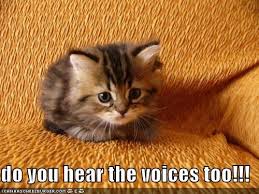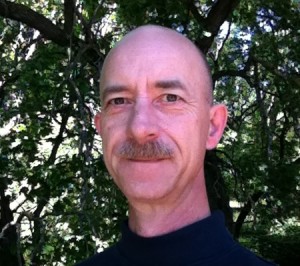A guest post by Guy Anthony De Marco
Every so often, I travel out to a new convention with my talented and lovely wife, Tonya. We normally drive our commercial van so we can transport our stock, shelving, banners, and boxes of books for authorly friends who are flying out. Tonya and I discuss plots, books, business, and have a grand time.
The first “new” con this year was RadCon in Pasco, Washington. This trip featured me singing 1980’s hits in my Arnold Schwarzenegger accent. You haven’t really experienced Culture Club’s “Do You Really Want to Hurt Me” until you’ve heard Arnie belting it out. I drove the 16-hour trip straight through with a couple of stops for fuel (body and vehicle), and to torture my poor wife’s eardrums.
Radcon supports a local project that has some of their guests traveling to local schools to talk to students. Elizabeth Vann-Clark, the con-chair, asked me to speak to the children at Chief Joseph Middle School in Richmond because of my technology background. Since I used to teach information technology at a couple of colleges, I agreed without hesitation. Elizabeth noted that many students don’t have an opportunity to discuss technology-based careers, which is why she started the program.
I met with the technology teacher, who introduced me and a fellow Radcon author to his classes. Most of the questions dealt with technology, but about a quarter were questions concerning writing genre fiction. The most popular question, with several follow-ups, was “How much money do you make?” and “How much money do you have?” I was a little more forthcoming about what I earned, noting the technology field was supporting my family while I worked on my novels and stories. I also noted that I travel around the country, going to conventions and talking with new or potential authors.
The experience was a positive one, and should I be invited back, I would be quite happy to visit the school again.
Writing is usually a solitary endeavor, but it doesn’t have to be. Commiserating a rejection with fellow authors or answering questions for folks just getting into writing at a convention can be a very rewarding experience. Don’t shut yourself out by locking yourself in your office space. Interacting can not only help others, but it can help you when you’re working on a new project. Some questions may actually jog your brain into gear, firing up the virtual muse in your head.
One of the best stories I tell along this line came from an experience at OSFest. A group of Denver-based authors, including Fictorian contributor Quincy J. Allen, traveled to Omaha for the first time. The author track was a new addition, and there were a group of attendees who were just starting the path to publication. One of them was Sarah Whittaker, who showed up to almost all of our panels. We also chatted with her outside of panels during the con, and Quincy and I told her she should have something published by the next OSFest convention.
The following year, we saw Sarah with her new novel, The Raggedyman, available in print and ebook. I have to admit, I was quite proud that she followed through. I made sure to buy a signed print copy from her. Watching someone you helped succeed, no matter how small you think your contribution was, will always give you a smile.
I’m sure there were folks who encouraged or mentored you, formally or otherwise. It’s time you paid that gift forward.





